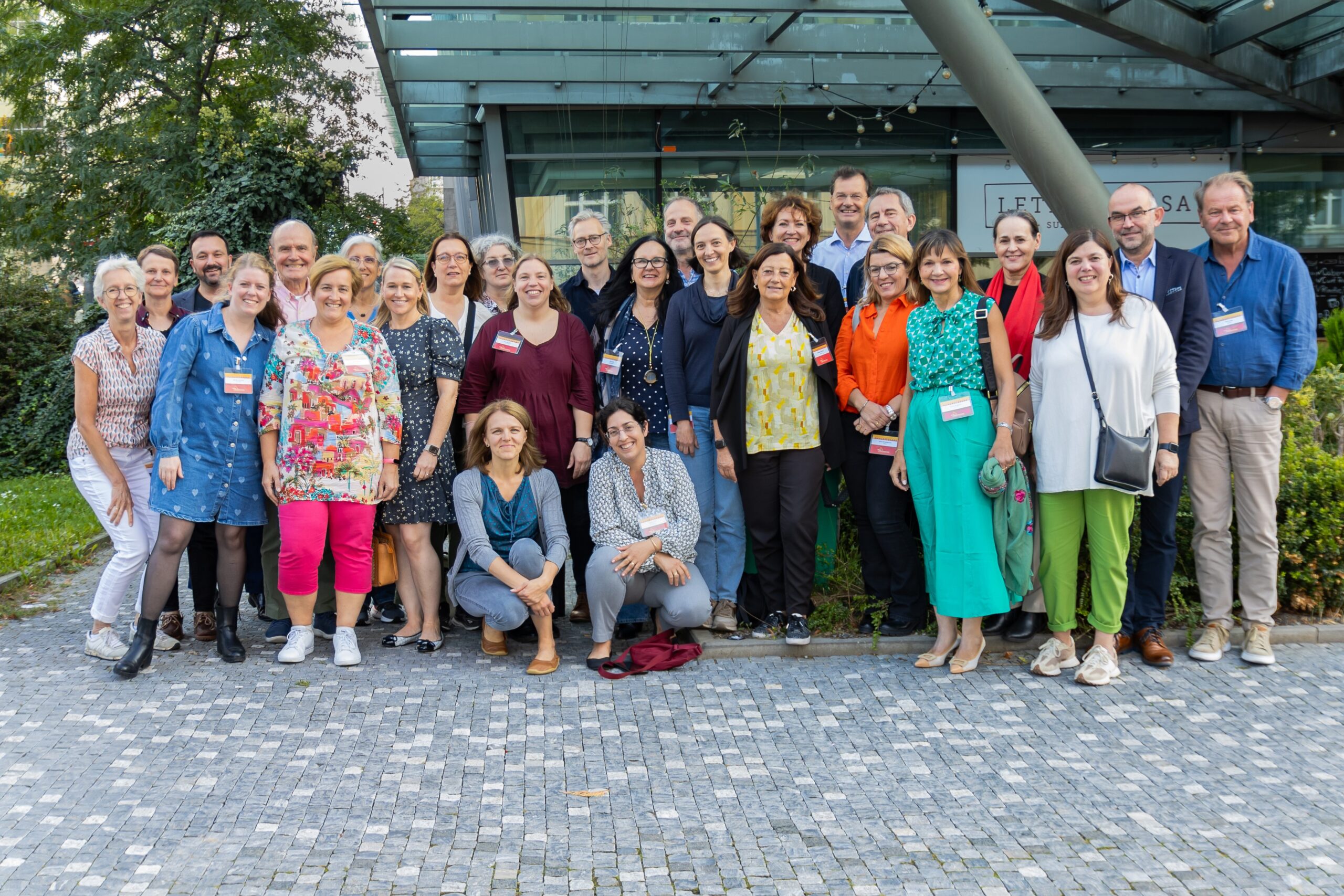The PEDiatric NETwork for haemophilia management (PedNet group) is a collaboration framework consisting of physicians who treat children with haemophilia and allied disorders. The group is used as a forum to:
- Exchange experiences on paediatric care of haemophilia
- Perform research in the field of haemophilia and related coagulation disorders
Physicians specialised in haemophilia can become partner of the PedNet group by invitation from the PedNet Management Board. In January 2025 the PedNet group consisted of 34 members from 19 countries each representing one of the Haemophilia treatment centres participating in the PedNet Registry.

Members of the PedNet Study Group present at the PedNet Annual meeting in Prague 2024
Research Programm
Every three years the PedNet Group publishes a Research Programme. There are several active working groups that are responsible for various studies using the data of the PedNet Registry. Every member of the PedNet group participates in at least one working group.
Click here to download the most recent PedNet Research Programme or the Supplement with the extended project description.
History of PedNet
The first meeting of the ‘European Network for Paediatric Haemophilia Management’ – later called PedNet – was held in 1997 with 21 participants from 16 European countries. The idea was to bring together Paediatric Haematologists who treated haemophilia. The original aims – still valid today – were:
- to establish a collaborative European network of Paediatricians treating haemophilia
- to have informal, small-group discussions on topics relevant to the Paediatrician
- to improve quality of care by promoting exchange between basic research and clinical medicine.
In the early 2000s, the idea came up to start a PedNet Registry to collect data of the children treated at our centres which shifted the focus more towards research. A first study that showed the potential of international collaboration was the retrospective CANAL study published in 2007 in Blood. The publication of the ‘Rodin-study’ in 2013 became a new important mile stone since the ‘non-Ped-Net members’ participating in the Rodin study were invited to be members of PedNet. The next important milestone for PedNet was the creation of an academically independent non-for-profit ‘PedNet Haemophilia Research Foundation’ founded in The Netherlands in 2016.
Today, on our 29th year, PedNet is livelier than ever with a long list of publications, active research groups, almost 3000 children in the registry and participants from 34 centres in 19 countries with a continuous natural influx of new members replacing previous ones – a promising future!